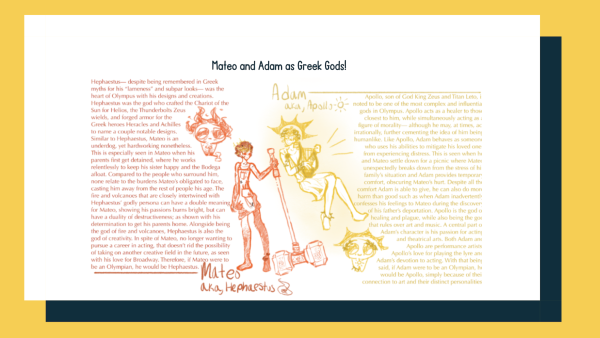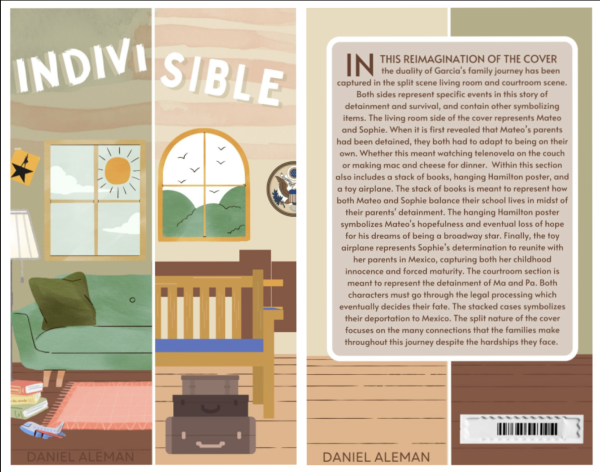
Last month, author Daniel Aleman joined English teacher Katherine Lipinski’s AP English Literature class to discuss his novel, Indivisible. With the class’s focus on narratives of immigration, Mr. Aleman’s visit offered students a chance to question an author about the process for writing the type of stories they’ve been studying all year.
The novel follows character Mateo Garcia, a New York City teen who tries to keep his family together as they face deportation. Mr. Aleman said, “When I wrote the book, there was a big conversation about immigration in the media, but I wanted to present a more human perspective on the issue, one that focused on the families affected rather than just the politics.”
Ms. Lipinski said, “My goal with this class was to have students read books which actually represented characters and stories they could relate to. Most of the students in Townsend Harris are first-generation or immigrants so I thought this book was a great fit.”

During the conversation, which occurred via a video call to the class, Mr. Aleman discussed how he gathered information from real people’s stories. “I spent a lot of time speaking with people who had firsthand experiences with immigration,” he said. “It reinforced how diverse every immigration story is.” He continued learning people’s stories while speaking to readers. “Connecting with readers, especially those who have parents affected by immigration or deportation was a special thing I took from this whole experience,” he said.
To start the visit off, a group of six students prepared ten questions about Invisible and Aleman’s writing process.
When asked if he would change anything about the book, Aleman said, “while I might rewrite a sentence here or there, I wouldn’t alter anything significant regarding the plot. By the time a book is published, you’ve read and revised it so many times that you’re confident in what you’ve put out.”
When discussing his research and writing process for the book, Aleman said that initially drafting a book, you start to seek validation, which doesn’t always come. However, he said he soon looked at rejections differently and focused instead on learning from them.
To thank Aleman for his time, the students organized a class gift with character illustrations, alternative endings, and fictional media inspired by the book. Junior Elvis Chan said, “I think there was no better way to show how much we appreciated reading his book. It’s so exciting to show the author your ideas and interpretations of different characters. You rarely get this kind of opportunity.”

After seeing the gift Aleman said, “I love seeing the different ways people interpret my characters. I will definitely look through these. Thank you!”
Junior Fariba Aktar said, “This book was a special read because it’s a different type of immigration story. Mateo had a support system the entire time, he had a life outside of just being a first-generation American which is not something that you typically see. I think it showed the effort Aleman put into making this story authentic.”
Ms. Lipinski said that students can connect with these authors through the Lambda Literary’s LGBTQ Writers in Schools program. They said that they plan to continue offering students the chance to meet with authors. “I think that author visits help students feel more connected to what they’re reading,” said Ms. Lipinski. “I think a lot of people when they’re reading a book have questions that they would love to ask the author but never get the chance and programs like these give them that chance.”





























